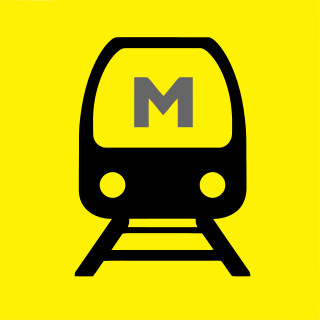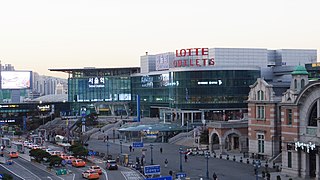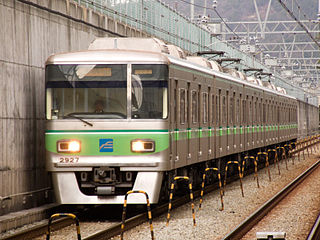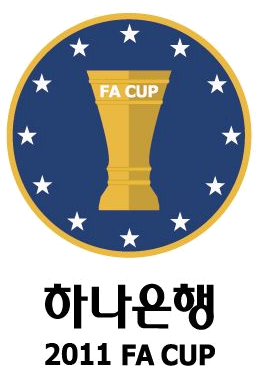Transportation in South Korea is provided by extensive networks of railways, highways, bus routes, ferry services and air routes that traverse the country. South Korea is the third country in the world to operate a maglev train, which is an automatically run people mover at Incheon International Airport.

The Seoul Metropolitan Subway is a metropolitan railway system consisting of 23 rapid transit, light metro, commuter rail and people mover lines located in northwest South Korea. The system serves most of the Seoul Metropolitan Area including the Incheon metropolis and satellite cities in Gyeonggi province. Some regional lines in the network stretch out beyond the Seoul Metropolitan Area to rural areas in northern Chungnam province and western Gangwon Province, that lie over 100 km (62 mi) away from the capital.

The Korea Railroad Corporation is the national railway operator in South Korea. It is branded as KORAIL (코레일) and changed its official Korean name in November 2019. Currently, KORAIL is a public corporation, managed by Ministry of Land, Infrastructure and Transportation.

Rapid transit systems operate in six major South Korean cities, except for Sejong.

The Beijing Municipal Administration & Communication Card, more commonly known as the Yikatong, is a stored-value contactless smart card used in Beijing, China, for public transportation and related uses. It is similar to Hong Kong's Octopus card, Singapore's CEPAS, The OMNY Card in New York City, United States, or the Oyster card used by Transport for London in London, England.

Seoul Station (Korean: 서울역) is a major railway station in Seoul, the capital of South Korea. The station is served by the Korail Intercity Lines and the commuter trains of the Seoul Metropolitan Subway.

The Busan Metro is the urban rail system operated by the Busan Transportation Corporation of Busan, South Korea. The metro network first opened in 1985 with seventeen stations, making Busan the second city in South Korea and third in the Korean Peninsula to have a metro system. The Metro itself consists of 4 numbered lines, covering 116.5 kilometres (72.4 mi) of route and serving 114 stations. Including the BGL and the Donghae Line, the network covers 205.6 kilometres (127.8 mi) of route and serving 158 stations.

AREX is a South Korean airport rail link and commuter rail line that links Incheon International Airport with Seoul Station via Gimpo International Airport.
City Hall Station or City Hall station may refer to:

Upass was a prepaid card for the transportation system in Seoul and its suburbs. The card was issued by Seoul Bus Transport Association and eB Card. Its parent-generation card is Seoul Transportation Card, a world-first commercial-used RF card for transportation ¹. The Korean system integrator Intec and Seoul Bus Union first launched a test of their system in a trial from October to December 1995. Currently, Upass has been discontinued, replaced by the newer T-money card. Existing cards still can be used in T-money areas.
KTX Family Card is the loyalty program and membership card of Korail. This card is issued by Korail Networks, subsidiary of Korail.
Seoul, the capital and largest city in South Korea, accounts for only 0.6% of the country's total land area, yet it is home to around 19% of the population. The population density in Seoul demands a great deal of the city's transportation systems, which are regarded by many as among the best and most advanced in the world. Seoul is very well connected by its subway and bus systems, and the city is also very supportive of pedestrian foot travel. In 2006 it won the Sustainable Transport Award.

The 2011 Korean FA Cup, known as the 2011 Hana Bank FA Cup, was the 16th edition of Korean FA Cup. Seongnam Ilhwa Chunma became champions and qualified for the 2012 AFC Champions League.
The 2016 Korean FA Cup, known as 2016 KEB Hana Bank FA Cup, was the 21st edition of the Korean FA Cup. Suwon Samsung Bluewings won their fourth FA Cup title after defeating defending champions FC Seoul in the final, and qualified for the 2017 AFC Champions League.
The 2017 Korean FA Cup, known as the 2017 KEB Hana Bank FA Cup, was the 22nd edition of the Korean FA Cup. The champions Ulsan Hyundai qualified for the group stage of the 2018 AFC Champions League. This edition introduced video assistant referee (VAR) system for the first time in Korean FA Cup history, using in the semi-finals and the final.
The 2018 Korean FA Cup, known as the 2018 KEB Hana Bank FA Cup, was the 23rd edition of the Korean FA Cup. Daegu FC qualified for the group stage of the 2019 AFC Champions League after becoming eventual champions.
The 2019 Korean FA Cup, known as the 2019 KEB Hana Bank FA Cup, was the 24th edition of the Korean FA Cup.
The 2020 Korean FA Cup, known as the 2020 Hana Bank FA Cup due to sponsorship agreement with Hana Bank, was the 25th edition of the Korean FA Cup. University clubs, including U-League teams, could not enter the competition since this year, and were replaced by K5 League teams.
The 2022 Korean FA Cup, known as the 2022 Hana 1Q FA Cup due to sponsorship agreement with Hana Bank, was the 27th edition of the Korean FA Cup.









